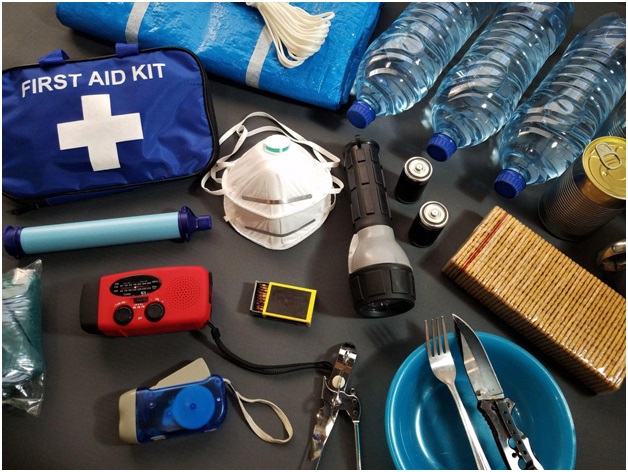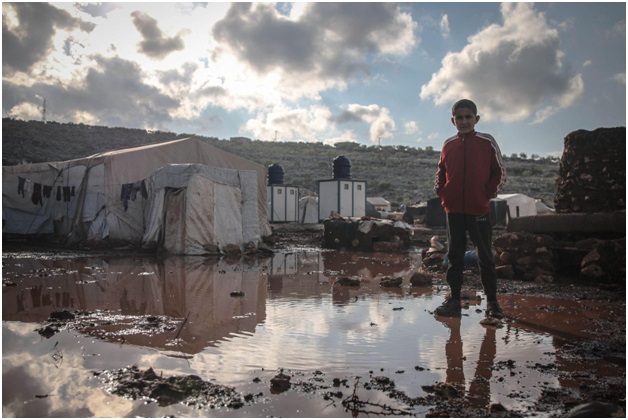Hurricanes are devastating natural disasters, so taking steps to prepare your home and family in advance will help reduce damage while keeping you and your family safe.
Stay informed by following news, weather and emergency channels for updates and instructions. Understand the difference between a hurricane watch and warning, and act upon instructions to evacuate if needed.
Know Your Zones
Preparing for a hurricane begins by knowing whether you live in an evacuation zone.
Evacuation zones are established based on areas that will flood first due to storm surge during a hurricane or tropical storm, and local officials work with news media and other channels to inform residents which zone they reside in and how best to respond during an attack. Residents are strongly encouraged to visit and search their address to see which hazards await them.
Once you know your zone, make sure you and your family have an emergency or evacuation plan in place. Also keep a written list of emergency contact numbers handy (for instance on the fridge or near all phones in the house) while programming them into cell phones so you can stay in contact during any crisis.
Preparing your home for a hurricane by taking steps to mitigate damage is another crucial part of being ready. This might involve trimming any dead or unhealthy trees on your property as well as securing any boats either inside your garage or at the beach.
Furthermore, make a list of supplies needed such as generators, sandbags and hurricane shutters before beginning.
Becoming familiar with your zone and taking steps to protect yourself, your family, and property before hurricane season starts is essential for ensuring a smooth recovery during and after an actual hurricane event. By following these tips you can help ensure an expedient recovery.

Know Your Sheltering Options
If you live in an area likely to be hit by hurricanes, it is wise to have a plan for sheltering. This can include staying home or heading towards either a friend’s or family member’s home outside the impact zone or public shelters as possible sheltering options.
Prepare a hurricane preparedness plan before hurricane season begins in order to have enough time and put everything in place, such as gathering supplies, having an alternate vehicle available and setting aside travel funds.
Check with your insurance provider as well, in case they offer coverage against potential damages that might occur during a hurricane.
Be sure to monitor the storm’s status, and follow any orders from authorities that tell you to evacuate if necessary. Recklessly disregarding an evacuation order could prove fatal; take time now to prepare your home if sheltering in place (boarding up windows, clearing catch basins, unplugging appliances and turning off propane tanks may all help) before making your way outside if it becomes necessary.
Installing certain upgrades ahead of time can help to protect your home. These include as well as storm panels. Professional installation ensures best results.

Have a Plan in Place
Plan for evacuation during hurricanes by knowing your evacuation zones, practicing routes, and identifying safe shelter locations.
As part of hurricane preparation, it’s wise to ensure your home meets hurricane standards by making any needed repairs and retrofittings. If your area is susceptible to flooding, elevating or moving to higher ground could help safeguard against storm surge. Also, mobile homes should be relocated before storm season starts. You can click the link: to learn more.
As soon as a hurricane approaches, take shelter indoors away from windows and skylights. Locate an interior room or closet on the lower level for safekeeping; tune into local or NOAA radio stations using your battery-operated radio in your hurricane kit for updates from authorities; listen for instructions regarding safety from them as they emerge.

Prepare a Disaster Supply Kit
Your supplies will be indispensable should you need to evacuate. Be sure to store enough nonperishable food and water for each member of your household for at least three days, along with sufficient medicine.
Furthermore, consider having flashlight and battery-powered or hand-crank radio with spare batteries, first aid kit copies of important documents, first aid kit essentials and local maps ready. You can to learn more.
Your kits should be stored in easily transportable containers such as an unused trash can, camping backpack or duffel bag. Each family should keep its own supplies organized into separate kits; infants and elderly members of the household should receive priority.
You should rotate through your supplies every six months; this provides an opportunity to check expiration dates on food and water items while also reviewing what your family requires.
Never disregard an evacuation order even if the weather appears calm; storms can quickly gather pace. If forced out, stay close to the road while carrying your disaster supply kit as an extra measure of protection.
Keep Your Cell Phone Charged
Cell phones may be your only means of communication during and after a hurricane. Therefore, it’s essential that you prepare and have supplies on hand to keep your device charged and functional during an emergency situation.
Before using your phone during an outage, ensure it has a full charge. Close any unnecessary applications and reduce brightness levels as much as possible to save battery life and prolong power outage duration.
Furthermore, text rather than call to reduce network resources useage; disable automatic search for wi-fi networks and stop push notifications that drain battery power – this should help extend its longevity during power outages. You can click the link: to learn more to do this.
As soon as a storm arrives, it will be crucial to stay informed via social media and emergency updates from local, state and federal authorities. You should also consider downloading any emergency apps such as American Red Cross or FEMA apps onto your phone; some apps even help take pictures for insurance purposes as well as track loved ones using location-tracking technology.